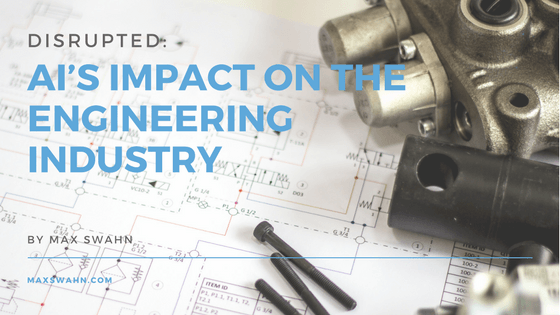Recently AI has been making a lot of headlines and not just because of robot Sophia gaining citizenship in Saudi Arabia. As it continues to become more prevalent in society, many have questions about the implications for them and their industries.
Artificial Intelligence refers to computer systems used to expedite or complete tasks previously done by humans given the complexity and logic required to do it. Now, this tech mimics that same human understanding. Throughout this evolution, the obvious application was originally for manufacturing jobs, but with the recent rapid growth, the reach has stretched far beyond production, and into fields like real estate, interior design and customer service.
The civil engineering field saw the first significant changes within the engineering world as a result of this new tech evolution, and as a result, there are both pros and cons. AIBusiness attributes one pro to AI’s opportunity to make more efficient and slick design and project planning tasks. Of course, then the next question becomes how many jobs do we want AI to eliminate in the name of productivity? In today’s job crisis, the obvious answer is none. As described, “AI will render many of the simpler professional tasks redundant – potentially replacing entirely many of the tasks by which our younger engineers and other professional learn the details of our trade.”
This dilemma isn’t limited to engineering either. Accord to CMO’s 2017 statistics on these tech trends, “16% of U.S. jobs will be lost over the next decade as the result of artificial intelligence and technology,” but they go on to say that “13.6 million jobs will be created during that time due to the trend.” Like all changing tides, shifts are inevitable. That being said many are uneasy over such rapid growth.
If you find yourself wondering where this leaves young engineer – many of these newly developed jobs require an engineering background. Many companies, while interested in adopting these new approaches, aren’t interested in training high-level employees on the smaller tasks needed to manage this new machinery. As a result, many lower-level engineering jobs aren’t being eliminated, but rather built around artificial intelligence. Lately, employers look for young, mechanical minded individuals who can adapt their approaches specifically to machine learning, the field behind the success of AI.
Industry leaders now to decide where and when to implicate these new practices. As highlighted above and by Deloitte, “This means understanding the available AI technologies and then analyzing existing and potential business processes, staffing models, data assets, and markets to identify ways that AI can be used to improve quality, speed, and functionality, as well as to drive top-line revenue growth.” Also, they need to factor what it may cost current employees or consumers and understanding whether the gains outweigh that aspect. In short, there is no simple way around artificial intelligence, but it appears as though this iceberg isn’t going away anytime soon.

